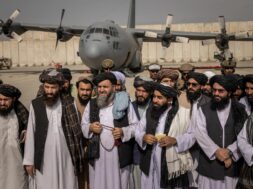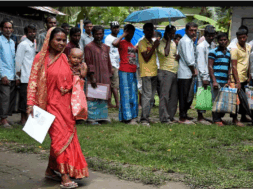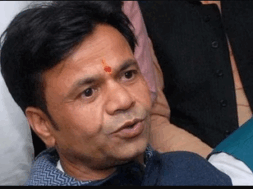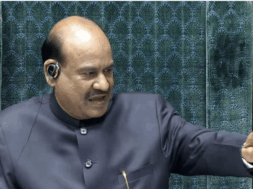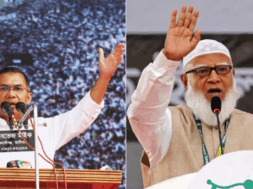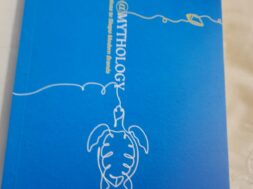
Short-Term Training Courses: Not a Recognition for Taliban Regime
Manas Dasgupta
NEW DELHI, Mar 13: India has denied any change on its stand on the Taliban government in Afghanistan, which it has refused to recognise, after reports of an alleged decision by the Ministry of External Affairs to conduct online training courses for Afghan officials evoked strong reactions.
The Afghan students who have been denied visas by New Delhi for nearly two years, termed the decision “contrary to India’s policy” and “disappointing.” While the Taliban is not recognised by any country, India is amongst about 15 countries that run missions in Kabul, which it reopened in June 2022 as a “technical mission.”
“The possible participation of officials of the foreign ministry in an online training course being organised under the Indian Technical and Economic Cooperation (ITEC) programme doesn’t reflect any change in New Delhi’s policy towards the setup in Kabul,” official sources said. There, however, was no official statement from the MEA.
The leak of the letter from the head of Afghanistan’s Institute of Diplomacy under the Taliban foreign ministry asking officials to register for the course, to be conducted by the Indian Institute of Management (IIM)-Kozhikode during March 14-17, caused consternation in New Delhi over the weekend. The official sources, however, said the course was part of the extensive ITEC programme under the external affairs ministry and was open to nationals of various countries, not just Afghanistan.
“This is only an online course — available across the world, including to Afghan students. While none of the students is being invited to India, we are not discriminating against Afghan nationals, and anyone can avail of the course,” a government official said, stressing that New Delhi does not recognise the Taliban, or its MFA, or its diplomats.
It was pointed out that the ITEC programmes for Afghanistan, which have benefited thousands over the years, had not stopped even after the Taliban took over Afghanistan in mid-2021. ITEC is one of the oldest institutionalised arrangements for global capacity building and its programmes have more than 200,000 officials from more than 160 countries.
A tweet on Monday from the official handle for ITEC indicated the course was meant for delegates from various countries. “The #eITEC course on Immersing with Indian Thoughts: An Indian Immersion Program for Cross Sectoral Foreign Delegates will provide a deeper understanding of India’s business environment, cultural heritage, and regulatory ecosystem to participants,” the tweet said.
India has so far refused to recognise the Taliban setup in Afghanistan, though it re-established a diplomatic presence in Kabul by reopening its embassy in June last year. A small group of diplomats, known as a “technical team”, is currently present in Kabul and India is yet to make a decision on resuming support for development projects across Afghanistan.
The letter in Dari issued by Mufti Nurullah Azzam, director general of the Institute of Diplomacy under the Taliban foreign ministry, said the Indian embassy announced through a note verbale or unsigned diplomatic correspondence that the IIM would organise a “short-term online training programme for the staff of the ministry of foreign affairs.”
The training programme has the theme “Immersing with India Thoughts”, according to an English translation of the letter, which was sent to all internal and provincial offices of the Taliban foreign ministry. “Respected colleagues who are official employees of the ministry and are interested and fluent in English language can register for the programme and officially inform the Institute of Diplomacy about their registration for the educational programme,” the letter said.
The letter added all participants must submit a brief report on the subjects and their learning at the end of the programme to the Institute of Diplomacy.
The Taliban have made repeated efforts to gain international recognition, including from India, for their regime, and the people said the leak of the letter should be seen in this light.
The Institute of Diplomacy, like all other official organisations in Kabul, is now completely under the control of the Taliban. As such, most of the institute’s officials and any person training at the facility have all been appointed by the Taliban. Most diplomats and officials who served under the erstwhile Ashraf Ghani government have fled Afghanistan and taken refuge in countries such as Germany, Turkey, the UK and the US.
According to details of the course available at the ITEC website, that is run by the Development Partnership Administration (DPA) section based at the MEA’s Jawaharlal Nehru Bhawan (JNB) headquarters in Delhi, the course is meant particularly for government officials and business managers. The four-day course would “help foreign officials and executives gain a deeper understanding and appreciation of India’s business environment”, providing participants “an opportunity to experience and learn about India’s economic environment, regulatory ecosystem, leadership insights, social and historical backdrop, cultural heritage, legal and environmental landscape, consumer mind-sets and business risks,” the website explained.
The Taliban memo sparked angry reactions online from Afghan students who have been unable to complete their education in India, as New Delhi cancelled all existing visas after the Taliban takeover, and, according to diplomatic sources, has not yet granted a single new visa for students wishing to travel to India. These include students who went home to Afghanistan mid-studies due to the Covid lockdown and couldn’t return to complete their degrees, and about a thousand students who won scholarships from the Indian Council for Cultural Relations (ICCR) in 2021.
Onib Dadgar, 28, said he was “shocked and disappointed” to read about the online courses that would be open to Taliban officials and diplomats in Kabul, given the predicament of students like him. Mr. Dadgar, an ICCR scholar, and his wife were due to travel to Karnataka as he was enrolled in a PhD programme but are now stranded. He says he fears for his safety in Afghanistan, and his wife, a qualified teacher, has been banned from working by the Taliban.
“It is really sad that in such a difficult time when Afghans need help, India denies to extend a helping hand, especially to those students whom they supported for years,” he wrote sharing an online petition on behalf of 2,500 students seeking MEA acceptance.
However, he says, he has “lost faith in India-Afghan friendship” given that his calls and emails to the government have gone unanswered for nearly two years. In addition, he said most of those students have already received letters from Indian colleges cancelling their admissions due to non-attendance, and many are applying to other countries in desperation.
The lack of visas is also an issue for those students presently in India, as they are unable to return home to see their families, for fear they cannot return to complete their education. “I was the kind of kid who couldn’t go for a single day without seeing my mother,” says Farhad who hasn’t seen his mother or family in Afghanistan since 2019. “I miss her so much, but I can’t afford to miss finishing my PhD that I’ve worked so hard for,” he adds, saying that he hopes that along with the now controversial ITEC course, the government will pay attention to the worries of students like him, and those stuck in Afghanistan as well.
